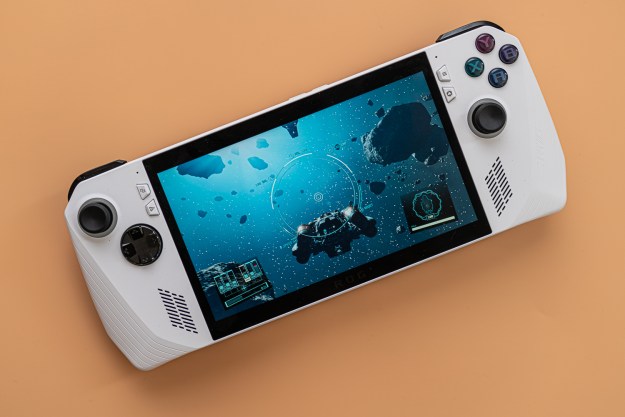Gotham Knights has a “we” problem.
WB Games Montreal’s latest follows four of Batman’s former sidekicks as they defend Gotham City and try to solve a case the caped crusader never could after Batman is killed. It’s a bold narrative hook, and by far the best part of this newly released superhero game. Unfortunately, Gotham Knights‘ writing has one flaw that’s become more prevalent in games as of late. Some game scripts, especially in multiplayer games or titles with more than one playable character, can feel impersonal, or even clinical, because they can’t attribute any actions to a single character.
Gotham Knights is simply the latest game to encounter this issue. What should be a personal tale about four heroes coming into their own sometimes feels like it’s following one conglomerate meant to replace Batman. The scripts of Watch Dogs Legion and multiplayer games like Destiny 2 and Marvel’s Avengers also suffer from this issue, as they require story moments to be as general and widely applicable to all players as possible. That approach has created a challenge for modern video games, which struggle to balance mass experience with narrative ambition.
There is no I in team
“There is no I in team” is an old cliché, but it’s something that the video game industry might want to give thought to. With an increased emphasis on both multiplayer and storytelling across the industry, more and more video game scripts find themselves having to account for multiple players doing the same things as different characters. Gotham Knights is an especially clear example of that. Players can tackle its missions as Nightwing, Red Hood, Batgirl, or Robin — four entirely different characters with distinct personalities. As a result, the script must find a way to bridge those differences and find a way to treat every experience across all of the story’s events equally.

Gotham Knights does try to account for that, as cutscenes and the dialogue in cutscenes change depending on which hero you’re playing. But that only works on a moment-to-moment level; on a grander scale, everything happens to everyone. When a hero out on patrol calls others after a mission, they’ll typically speak as a collective group of individuals rather than a single character. And when referencing past events, the heroes will use pronouns like “we” or “us” rather than naming the specific character who thwarted a supervillain’s plan or resolved a crime.
This issue reared its head for me at one point in Gotham Knights when a character gets kidnapped by the Court of Owls. In my case, it happened to Robin, and the following segment in the Court of Owls’ Labyrinth was one of the most emotional levels of the game. That’s why I was thoroughly disappointed when the Bat Family spoke as if everyone got kidnapped in any conversations that brought the event up afterward, using pronouns like “we” or “us.” It made a personal moment feel clinical as this vaguer dialogue exposed how the game was solving for any possible experience, solo or multiplayer, in a machine-like manner rather than a narratively satisfying one. I began to feel like it didn’t matter what happened to specific characters because it would have happened to any character I chose, regardless.
That choice solves one problem but creates another by making some of Gotham Knights‘ more intimate moments feel notably less personal — and that’s not a problem that’s unique to the Bat Family. Watch Dogs Legion allows players to recruit and control any old character off the street and turn them into a member of the hacking collective DeadSec. Due to that gameplay hook, the group itself was treated like the main character in and of itself, as the game references the actions of the group rather than those of individual characters. That setup will also be familiar to players of live service games with ongoing narratives like Destiny 2 and Marvel’s Avengers, as the writing treats each individual character as a member of a larger idea in service of a shared narrative. It feels like the plot is simply happening to the player, not that they are actively influencing and affecting it.
We, the players
Writing games this way is the clearest way to ensure that all players get the same experience, but more personalization can go a long way. I’m a fan of Gotham Knights‘ story, but I wish I could have seen stronger character arcs from chapter to chapter, as opposed to a few lines of special dialogue within specific scenes. Watch Dogs Legion’s gameplay innovations would’ve been even more impressive had the game’s script built upon those foundations. Destiny 2’s lore would be even better if more players left a lasting impact on it.

As more games move away from telling stories with a singular hero, the challenge is in keeping those narratives engaging on a player-to-player level. Some moments in Gotham Knights and Watch Dogs Legion would have felt more tailored to my experience had dialogue referenced the actual character I’d controlled in a given mission, giving me a sense that I was actually watching someone develop rather than an interchangeable protagonist.
Of course, that’s all easier on paper than it is in practice. it would require more dialogue variations and tracking of each player’s actions, which is likely more complicated from both a creative and technical perspective. Still, if we’re going to get more interactive stories that leave the door open for multiple experiences and heroes, it’s going to take a bit of creativity to keep narratives feeling personal — lest all players get lumped into one royal “we.”



